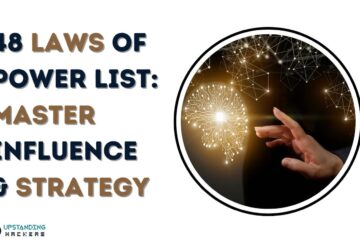Writing summaries is a skill. With compelling summarizing techniques, you can distill a wide range of data and information. This will give readers a synopsis of the main ideas in the material they are going to read. A well-written summary provides readers with a foundational understanding of a piece of history, literature, or media.
It gives the reader a general overview. Few people actually have the ability to write summaries, despite popular belief. You can still learn how to write summaries, though. We can help if you feel that your writing is lacking in the area of summaries.
It’s easier than you might imagine. Let’s take a look at the field of summarization and the best strategies for streamlining your information processing.
What Is a Summary?
Let’s first define a summary before moving on to summary writing strategies. It is a shortened version of a larger piece that gives the reader a comprehensive grasp.
It should be possible for every writer to craft an engaging one-paragraph synopsis. Regardless of whether they are summarizing a drama, novel, event, or newspaper story, a summary is a condensed examination of a lengthy work that gives the reader a comprehensive understanding of the topic or primary idea.
You must summarize the main points of the essay in a succinct synopsis. A summary is a condensed paragraph that presents a section or piece of writing. This will give the reader enough details to understand the topic of the summary. It also reveals information about the writer’s familiarity with the subject.
Summarizing Techniques for Writing a Good Summary
The summarizing process is automated by a summarizing tool. Providing viewers with a concise synopsis of the original article, essay, movie plot, etc is the basic goal of the summarizing tool. These techniques will help you write a strong summary.
Identify the main idea
Prior to creating a summary, grasping the core idea is the most important step. In the same way that a book’s title can reveal a lot about it, a summary needs to be able to accurately capture the main concept of the original material. One needs to comprehend the passage’s main notion in order to reach that precision.
Make the most of the few lines you have to express the essential concept you want the audience to understand. Take some notes to assist you in organizing your ideas.
The issue is, how can one identify the primary idea?
It is easy. To complete the task, simply read the passage. Note any pertinent information that you believe the passage warrants. Try using the points you have marked to construct the primary concept. For more clarity, you can also write out the points.
Keep it short and simple
A summary is not a rewrite; rather, it is a condensed version of the original work. A summary paragraph usually consists of five to eight sentences. Be direct and succinct. Take out any unnecessary or repetitive information to make your paragraph more concise and clear.
Yes, you have to include all the important information a reader would need to understand your essay without having to read the original source. In essence, a summary is just that.
If the reader needs specifics in order to understand the main ideas, don’t include them. Specifics like numbers, statistics, dates, or figures should not be included. It is merely unnecessary and redundant. A summary ought to be succinct and accurate.
Compose without passing judgment
When writing summaries, most people have a tendency to include their personal ideas. Many of them don’t understand what the summary itself means. You must adhere closely to the original text and not express your personal opinions regarding the subject or issue.
To be clear, you are not writing a review; rather, you are simply summarizing some provided facts. You may write the summary in your native tongue but don’t include any personal commentary.
As you read the content, make notes about it.
Because the human brain is limited in its capacity to retain information, it is conceivable that you will omit some crucial facts when summarizing a lengthy article. Thus, it is usually a good idea to make notes as you read the material.
Paper can be used, or the source material can be annotated. Underlining, highlighting, translating, and taking notes in the margins of the text you’re reading are all examples of annotations. Remember to just write the primary concepts.
Divide your paragraph into sections

A correct framework is necessary for a successful summary. This implies that each of your paragraphs ought to have a main idea. a few phrases that bolster it, followed by a claim that encapsulates the paragraph.
The topic sentence of a one-paragraph summary can include a reference to the original content. The opening sentence of your introduction can include a longer summary if you are composing one. State the primary idea of each item you are summarizing at the outset.
The crucial parts are the supporting sentences that follow your topic statement. When writing a long essay, remember that the main idea of each paragraph should be summed up in the topic sentence.
Go review your summary again
Review the summary after you’ve finished writing it. If you have time, read the original material again to make sure you didn’t miss anything. If you are pressed for time, you may always consult your previous outline and notes.
Verify that you have addressed every single thing. Moreover, eliminate any text that is repeated. Examine the summary for grammatical mistakes and its overall flow. Request comments from someone. Let them infer what the original text contained from the summary.
In this manner, you may determine whether the information is missing or whether there is a lack of flow. Additionally, confirm that the summary does not include your personal thoughts on the topic.
Wrapping Up
Effective summarizing changes everything in a world when information is abundant. By putting the strategies covered in this article into practice, you may improve your comprehension of a variety of topics and save a lot of time. Developing your summarizing skills is important, whether you’re a professional, a student, or someone trying to increase your own productivity.










